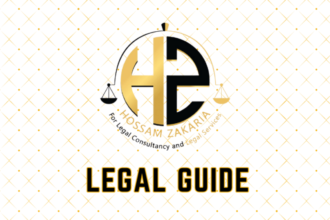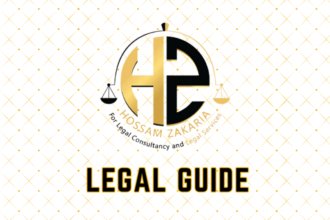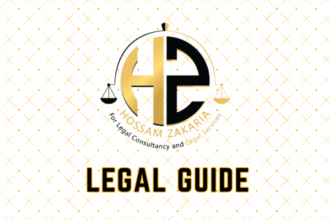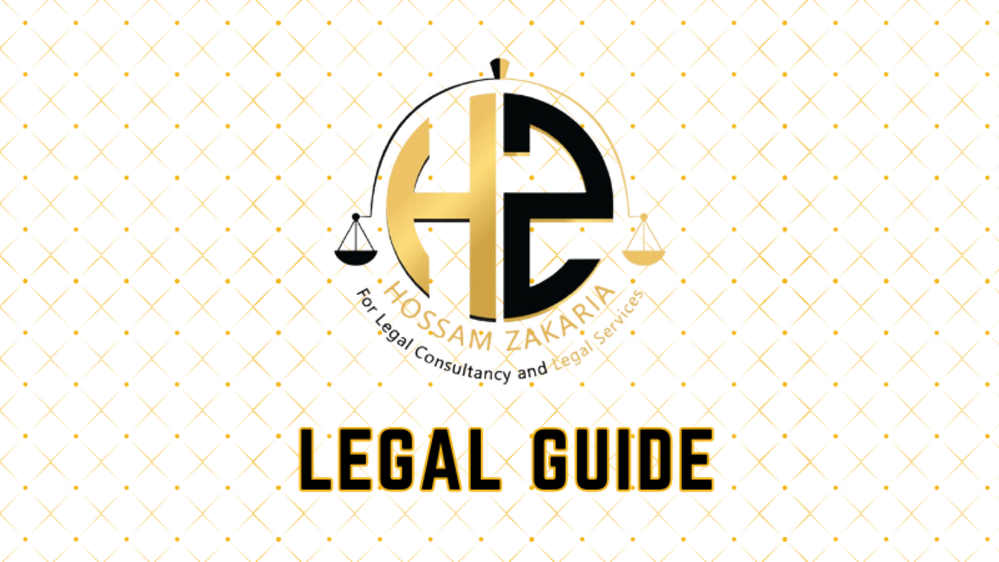Introduction: The Legal Landscape of Air Carriers in the UAE and Qatar
Over the past decade, the Middle East has witnessed a remarkable evolution in air transportation law, driven by both regional collaboration and the imperative for robust, passenger-centric regulation. Nowhere is this more evident than in the interplay between Qatar’s Civil Aviation Law and the United Arab Emirates’ pursuit of best-in-class regulatory compliance among its air carriers. For UAE-based airlines, cargo handlers, travel businesses, legal practitioners, and HR professionals, a precise understanding of air carrier duties under Qatar Civil Aviation Law is essential—not only for regulatory compliance but for sustainable business operations and risk mitigation in 2025 and beyond.
Recent amendments to UAE aviation regulations, including updates following Federal Law No. 20 of 1991 on Civil Aviation and a series of new Cabinet Resolutions, require a more informed response from market participants. This expert legal analysis explores the scope and application of Qatar Civil Aviation Law as it applies to the UAE business context, unpacking obligations, potential liabilities, and strategic compliance pathways.
Table of Contents
- Overview of Qatar Civil Aviation Law
- Application within the UAE Legal Framework
- Core Legal Duties of Air Carriers Under Qatar Law
- Contractual Liability and Consumer Protection
- Comparison: Old vs New Obligations for Air Carriers
- Risks of Non-Compliance and Enforcement Scenarios
- Practical Compliance Strategies for UAE-Based Air Carriers
- Case Studies and Hypothetical Examples
- Future Trends and Best Practices
- Conclusion: Maintaining Legal Compliance and Competitive Advantage
Overview of Qatar Civil Aviation Law
Legal Sources and Regional Significance
Qatar’s Civil Aviation Law—prominently encapsulated in Law No. 15 of 2002 as amended—establishes a rigorous regulatory regime governing all aspects of air carriage, passenger rights, carrier liability, airspace navigation, and aviation safety. While Qatar’s law is strictly domestic, the extraterritorial operations of UAE airlines often necessitate direct or indirect compliance with its provisions. This is especially true for UAE carriers operating to or through Qatar, relying on bilateral air service agreements, and serving a diverse passenger base with rights anchored in multiple jurisdictions.
For immediate reference, official texts of the UAE aviation legal framework are found in:
- Federal Law No. 20 of 1991 on Civil Aviation and its amendments;
- Cabinet Resolution No. 39 of 2020 regarding the organization of air services;
- Guidance and circulars issued by the UAE General Civil Aviation Authority (GCAA) and UAE Ministry of Justice.
Key Themes in Qatar Civil Aviation Law
- Carrier liability towards passengers and goods;
- Standard of care and mandatory insurance;
- Contractual terms, consumer rights, and legal remedies;
- Obligations for passenger documentation, denied boarding, and compensation;
- Safety protocols and reporting obligations around accidents or incidents.
Application within the UAE Legal Framework
Why Should UAE Organizations Pay Attention?
Despite separate legal systems, the harmonization of air law across GCC nations—prompted by regional treaties and cross-border cooperation—means that UAE air carriers are regularly subject to both local and foreign regulatory obligations. The UAE’s status as a regional aviation hub, its extensive network of flights to Qatar, and the complexity of international conventions (such as the Montreal Convention, ratified by the UAE under Federal Decree No. 13 of 1999) require UAE-based air carriers to understand and align with Qatar’s civil aviation stipulations.
This is especially pertinent post-2023, as UAE authorities have intensified their enforcement of international best practices (see GCAA Safety Circular 07/2023) and expect proactive compliance by all domestic operators—even in the context of foreign-origin regulations impacting cross-border cargo and passenger activities.
Legal Jurisdiction and Extraterritorial Issues
It is vital to determine the applicable law in any air carriage dispute or incident involving the UAE and Qatar. Typically, the jurisdiction will depend on:
- The location of the incident;
- The nationality of the carrier and the passenger;
- The terms of the air carriage contract;
- Applicable treaties and intergovernmental agreements.
Legal counsel should be familiar with the mechanics of jurisdiction and the possibility of dual or concurrent liability exposure.
Core Legal Duties of Air Carriers Under Qatar Law
Duty of Safe Carriage and Standard of Care
Air carriers are held to a high standard of duty under Article 35 of Qatar’s Civil Aviation Law and equivalent UAE regulations. This means:
- Ensuring the safety, security, and welfare of passengers from embarkation to disembarkation;
- Maintaining airworthiness of aircraft, staff training, and the integrity of ground operations;
- Implementing protocols for denied boarding, delays, or exceptional circumstances (as incorporated in GCAA Air Passenger Rights Regulations 2022);
- Documenting passenger information and ensuring legal compliance in documentation and communication.
Duty to Compensate for Loss or Damage
Carriers are liable for loss of life, bodily injury, or material loss suffered by passengers and cargo, save for certain defenses (force majeure, contributory negligence, etc.). Both Qatar Civil Aviation Law and international conventions (such as Montreal and Warsaw) adopted by the UAE establish specific thresholds, limits of liability, and procedural requirements for claims.
| Aspect | Qatar Civil Aviation Law | UAE Law (as updated) |
|---|---|---|
| Passenger Death/Bodily Injury | Approx. 250,000 SDR* | Approx. 100,000 SDR* |
| Baggage Damage/Delay | 17 SDR/kg (checked), 332 SDR (hand baggage) | As per Montreal Convention |
| Notification Deadline | 7 days from discovery | Within 7 days for baggage, 21 days for delay |
| Big Exception | Force majeure events | Same with enhanced documentation |
*SDR = Special Drawing Rights. Accurate at time of publication; always check latest decrees or circulars.
Insurance and Financial Security
Carrier liability insurance is mandatory. Under Qatar law, carriers must show proof of sufficient insurance to cover risks of injury, death, baggage, and cargo loss—mirrored by UAE GCAA requirements (see GCAA Circular GEN-2023-12). Non-compliance can result in licence suspension or administrative penalties.
Contractual Liability and Consumer Protection
Consumer Rights in Air Travel: Lessons from Qatar and UAE
Recent regulatory trends have emphasized protection of passengers against unfair practices, opaque terms, or arbitrary refusals. UAE’s latest ‘Air Passenger Rights Regulations’ (2022) reflect global standards and closely mirror provisions under Qatari law regarding:
- Advance disclosure of contract terms, ticket conditions, and passenger entitlements;
- Transparent compensation for denied boarding, cancellation, or significant schedule changes;
- Express remedies for delay, baggage mishandling, and involuntary rerouting.
Legal practitioners should advise UAE businesses to periodically review their standard form contracts and consumer-facing documents to ensure absolute parity with both Qatari and UAE legal requirements, especially where code-sharing, interlining, or joint venture operations are involved.
Sample Compliance Checklist Table (suggested visual integration)
| Requirement | Qatar Law | UAE Law | Action for UAE Companies |
|---|---|---|---|
| Passenger Compensation Policy | Mandatory, transparent | Mandatory | Align policies, publish terms |
| Claims Procedure | Fixed deadlines | Fixed deadlines | Train staff, update website |
| Disclosure of Limitation of Liability | Required in tickets | Required in tickets | Legal review of ticket T&Cs |
| Appeals Mechanism | Administrative appeal possible | Contact GCAA/UAE courts | Set up internal review body |
Comparison: Old vs New Obligations for Air Carriers
How Have the Laws Changed?
Both Qatar and the UAE have updated their legal regimes in response to international standards, GCC cooperation, and the need for higher consumer protection. Below is an overview of key updates and shifting responsibilities for UAE air carriers, illustrated in table format:
| Obligation | Pre-2022 Law | 2022/2023 Updates |
|---|---|---|
| Scope of Carrier Liability | Narrowly defined, limited financial caps | Expanded, with higher compensation caps |
| Denial of Boarding | No detailed passenger rights | Mandatory compensation, clear process |
| Baggage Handling | Minimal provision for delays/loss | Enhanced reporting, stricter deadlines |
| Insurance | Basic coverage required | Proof of minimum coverage & annual review |
| Consumer Complaints | Discretionary handling | Standardized process via GCAA portal |
Consultancy Insight:
UAE firms engaging in code-sharing or joint services with Qatari operators should thoroughly audit contractual and operational procedures, update staff training programmes, and proactively communicate any changes to affected stakeholders.
Risks of Non-Compliance and Enforcement Scenarios
Regulatory Penalties and Legal Liabilities
Non-compliance can have severe financial and operational ramifications for UAE-based air carriers. These risks include:
- Significant fines under both UAE and Qatar aviation laws;
- Suspension or revocation of operational licences by UAE GCAA under Federal Law No. 20 of 1991;
- Exposure to civil lawsuits and compensation claims—often with cross-border enforcement challenges;
- Brand and reputational harm impacting future market access and interline agreements.
For example, failure to pay prompt compensation to a delayed Qatari passenger under both Qatar Civil Aviation Law and the Montreal Convention could result in:
- A direct claim in Qatar for monetary damages;
- Referral to the UAE GCAA and escalation by the Ministry of Justice;
- Administrative penalties, including suspension of route rights for repeated offenders.
Suggested Visual: Penalty Comparison Chart
| Offense | Qatar Penalty | UAE Penalty (2023+) |
|---|---|---|
| Denied boarding without compensation | Up to QAR 100,000 fine | Up to AED 200,000 fine |
| Failure to provide adequate insurance | Operational suspension | Immediate grounding, GCAA review |
| Late claims settlement | Judicial order, interest awarded | Escalation via GCAA, administrative fine |
| Repeated violations | Licence revocation | Blacklisting, licence suspension |
Practical Compliance Strategies for UAE-Based Air Carriers
Legal Risk Assessment and Internal Controls
To avoid regulatory pitfalls when operating between the UAE and Qatar, UAE-based air carriers are advised to implement a comprehensive compliance framework that includes:
- Regular legal audits: Annual review of all operational policies, insurance contracts, consumer documentation, and staff training against current UAE and Qatar law;
- Enhanced staff training: Ongoing education for frontline and management on latest passenger rights, compensation mechanisms, and crisis response protocols;
- Robust documentation: Clear, accessible contractual terms for passengers and cargo clients—translated when necessary and reviewed by legal counsel;
- Centralized compliance monitoring: Appoint a dedicated compliance officer or team with cross-border oversight, reporting directly to C-suite and general counsel;
- Incident response planning: Develop and test procedures for rapid response to accidents, customer complaints, denied boarding incidents, or cross-border claims.
Sample Visual: Air Carrier Compliance Process Flow
Suggested image: A step-by-step flowchart showing internal compliance checks from booking to claims resolution.
Case Studies and Hypothetical Examples
Case Study: Delayed Baggage for a Qatari Passenger on UAE Carrier
Scenario: A UAE-based airline operating a flight from Dubai to Doha misroutes baggage belonging to a Qatari national. The baggage arrives two days late, causing the passenger to incur documented expenses.
Analysis:
- The carrier’s duty of care (as set out in Qatar Civil Aviation Law) and liability limits under Montreal Convention (as applied in the UAE) require prompt compensation payments, subject to proof of expenses;
- Failure to settle within legal deadlines exposes the UAE carrier to fines in both Qatar and the UAE;
- A proactive compliance approach—such as immediate notification, internal investigation, and direct reconciliation with the passenger—mitigates risk and preserves business relations.
Hypothetical: Medical Emergency During UAE-Qatar Flight
Scenario: During a flight from Abu Dhabi to Doha, a passenger suffers a serious medical emergency allegedly due to insufficient pre-boarding information. The family seeks damages under Qatari law, claiming breach of duty.
Legal Considerations:
- Both UAE and Qatari standards require disclosure of potential risks and provision of medical support;
- Carrier must show compliance with pre-existing regulatory and contractual standards;
- Risk of dual claims (both legal systems), highlighting the need for thorough documentation and supplier vetting.
Future Trends and Best Practices
Regulatory Trends for UAE and GCC Carriers
- Migration towards harmonized GCC aviation law, increasing standards for consumer protection and uniform compensation mechanisms;
- Adoption of digital solutions for claims processing and compliance monitoring, led by GCAA and regional authorities;
- More aggressive enforcement of cross-border decisions, heightening the need for robust legal engagement before disputes arise.
Best Practice Recommendations
- Schedule annual legal reviews by specialized counsel, focused on both UAE and Qatari updates;
- Deploy user-friendly portals and digital claim tracking for passengers to increase transparency and trust;
- Regularly train all staff in the nuances of foreign (Qatar) regulatory exposure when conducting operations to, from, or over Qatari territory;
- Communicate proactively with stakeholders about any legal or policy updates—demonstrating leadership and minimizing the risk of surprise claims.
Conclusion: Maintaining Legal Compliance and Competitive Advantage
The increasing complexity of air carriage law in the Gulf—fueled by recent amendments, transnational treaties, and rising consumer expectations—demands unprecedented diligence from UAE-based air carriers. By internalizing the legal duties imposed by Qatar Civil Aviation Law and ensuring seamless compliance through internal policy, training, documentation, and incident response, UAE businesses not only avoid regulatory pitfalls but enhance their brand reputation, market access, and long-term resilience.
Looking forward to 2025 and beyond, those UAE air carriers that embrace legal best practice, technological innovation, and proactive stakeholder engagement will maintain a distinct competitive edge—no matter how dynamic the regulatory environment becomes.
Key Takeaways
- Both Qatar and the UAE maintain robust air carrier legal frameworks, with significant cross-over in regulatory standards and enforcement;
- UAE businesses with Qatari exposure must review, update, and stress-test their legal compliance policies annually;
- Early legal advice and ongoing staff development are the most effective tools against regulatory and reputational risk;
- Vigilant alignment with current GCAA guidance, Federal Law No. 20 of 1991 (as amended), and Qatar civil aviation stipulations is now a non-negotiable operational requirement for all air carriers in the region.



